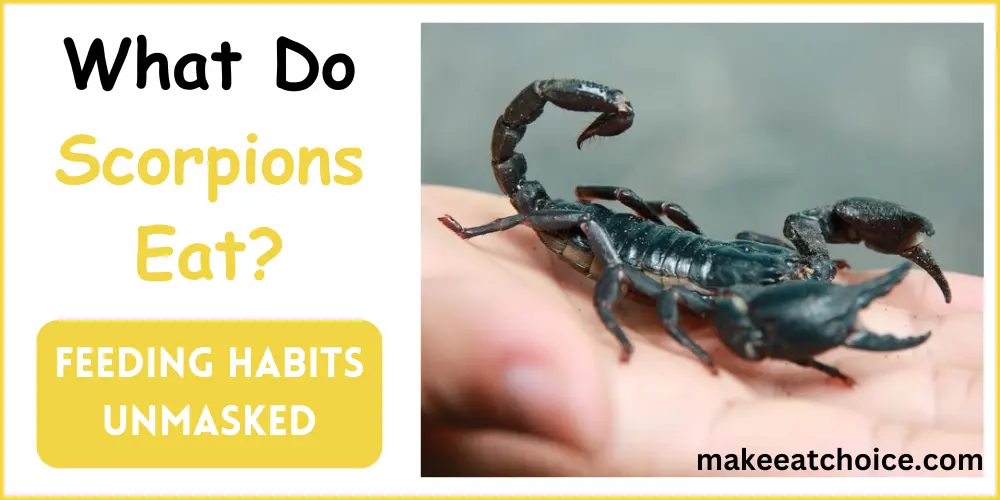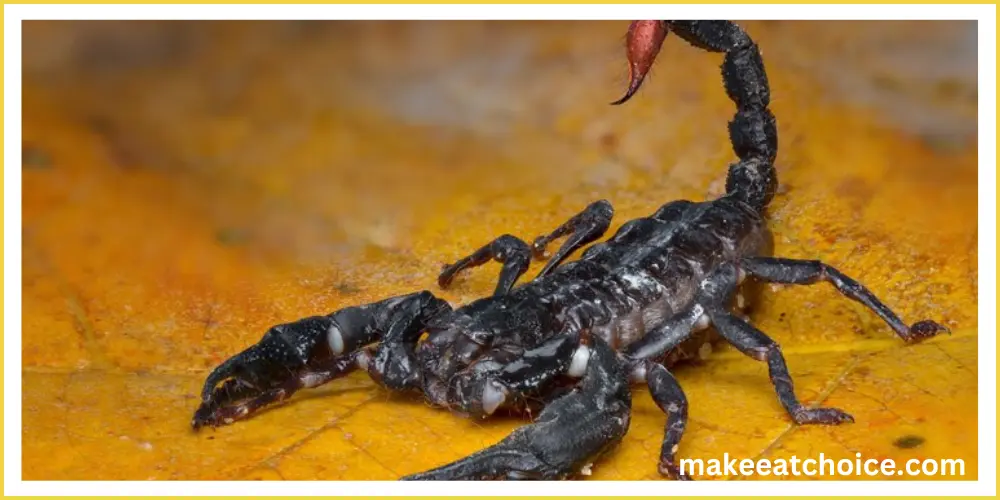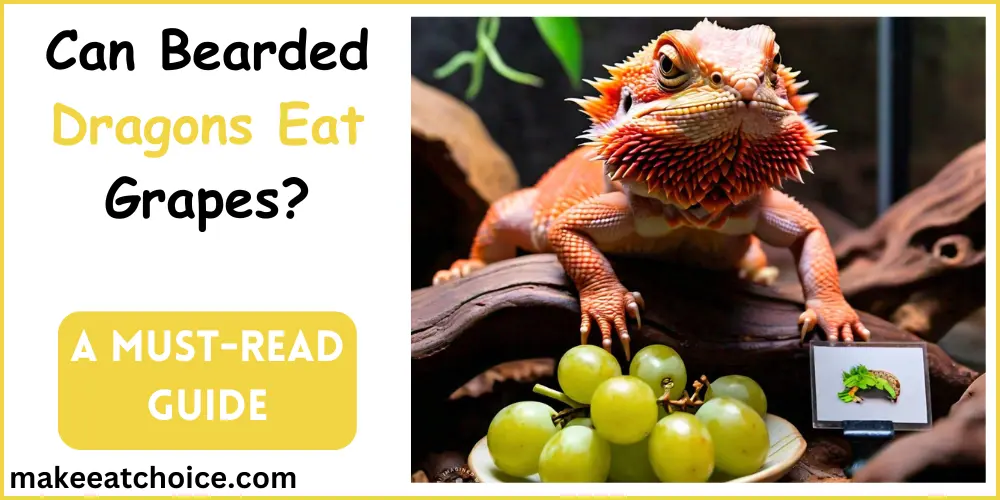
Scorpions, an extinct order of arachnids circulating on Earth for more than 430 million years, predating the dinosaur era, elicit an intriguing combination of apprehension and captivation. Their predatory nature and poisonous sting have garnered them a place in the folklore of numerous cultures. Gaining insight into the ecological function of these organisms and developing strategies for coexistence with them are fundamentally dependent on determining their diet.
This exhaustive guide aims to elucidate the dietary habits of scorpions, including an analysis of their prey preferences, feeding behaviours, and the nutritional significance of their diet. Whether you possess a deep affection for the natural world or are an enthusiastic supporter of pets, this article will unveil the gastronomic realm of these elusive organisms.
What Do Scorpions Eat?
Before addressing the inquiry, “What do scorpions eat?” it is critical to comprehend precisely what they are. As members of the Arachnida order, scorpions are in close biological relation to parasites, mites, and spiders.
The short answer is “Scorpions primarily feast on insects, spiders, and small vertebrates. They use their venom to immobilize prey before consuming them.”
Currently, the number of scorpion species exceeds 2,000, with each species having developed specialised foraging strategies and adapted to a distinct habitat. Spiking individuals inhabit tropical regions such as South American rainforests and African deserts; scorpions exemplify the diversity of life on Earth.
Anatomy and Physiology of Scorpions
The distinctive characteristics of the scorpion consist of a segmented body, a pair of pedipalps terminating in pincers, and the notorious tail, which conceals a venomous stinger. An exoskeleton envelops its segmented body, serving the dual purpose of safeguarding and providing structural support.
Scorpions, similar to other arachnids, possess four pairs of legs; however, they depend on their pedipalps to grasp prey. The sensory filaments affixed to these appendages enable them to detect and capture unsuspecting prey.
Prey Items Consumed by Scorpions
As a result of their carnivorous diet, Scorpions consume a wide variety of animals. Their diet varies from small vertebrates, such as mice and lizards, to invertebrates. The classification of the substances consumed by scorpions can be delineated as follows:
Scorpions Feed On
- Insects and Arachnids
- Other Scorpions
- Small rodents or lizards (depending on the scorpion’s size and geographic location)
- Amphibians
- Nestlings and small birds
- Crustaceans and occasionally carrion
How Dangerous are Scorpion Stingers?
Scorpions employ their venom for self-defence and to subdue prey. Varying in potency from species to species, certain venoms can inflict a lethal wound on humans. However, most scorpion bites are painless and akin to bee stings in that they only induce temporary swelling and discomfort with no lasting consequences.
It is worth mentioning that although certain species, such as the Egyptian fat-tailed scorpion and the Deathstalker, have a formidable reputation, they are the only ones that pose a substantial danger to humans. However, extreme caution should be exercised when stung by a scorpion, and medical attention should be sought, especially in regions where hazardous species are prevalent.

Why Do Scorpions Glow Under Ultraviolet Light?
A characteristic that some scorpions possess that causes them to illuminate green or blue when exposed to ultraviolet light is called fluorescence. Biologists continue to dispute this trait’s evolutionary function.
Some hypothesise that luminescence is a defensive mechanism produced when ultraviolet light interacts with a layer of the scorpion’s exoskeleton. This may increase the visibility of scorpions to potential predators, dissuading them from launching an attack. Others hypothesise that it could be utilised to locate other scorpions or entice a mate.
Feeding Behaviors and Adaptations
Scorpions are predatory with patience. Due to their nocturnal behaviour and preference for an ambush, they are highly suitable for hunting. They can go without sustenance for extended periods, storing fat in their tails for lean times. After detecting potential prey’s vibrations with their sensitive hairs, scorpions employ various capture strategies, including speed and concealment.
Luring Prey
More giant scorpions use their experience to lure prey to them, often remaining motionless until the victim is close enough to be snatched.
Stealth and Caution
Some smaller species use a more cautious approach, moving slowly and cautiously, relying on camouflage, and waiting for the perfect moment to strike.
Agility
Other species are more aggressive, quickly springing towards their prey and seizing it with their pedipalps and tail.
Interactions with Humans
Humans and scorpions have a complicated relationship. Although scorpion strikes can be harmful, these arachnids provide some environmental advantages. Spiking populations regulate insect populations, particularly in arid and semi-arid regions, thereby contributing to the ecologies’ equilibrium.
Invasive Behaviors
Human activity has the potential to facilitate the expansion of scorpions into uninhabited regions, thereby establishing their presence and exploiting indigenous species to the detriment of the ecological balance.
Conservation Implications
Particularly for the identification and protection of scorpion habitats, conservation efforts must have a thorough understanding of their dietary needs.
Scorpions in the Pet Trade
Enthusiasts are also known to preserve scorpions as pets due to their extraordinary appearances and behaviours. When kept in captivity, providing them with a diet resembling their natural feeding patterns is ideal. This is typically achieved by including live invertebrates such as mealworms and crickets, which adequately supply the necessary nutrients.
Related:
FAQs
Now, we’ll address some commonly asked questions about the dietary habits of scorpions:
What is Scorpion’s Favorite Foods?
Even though scorpions can have a varied diet, in captivity, they frequently consume crickets and other insects for sustenance. Preferences may differ among species and habitats in the environment.
What are Scorpions Most Likely to Eat?
Insects top the list of scorpion prey. This could range from giant beetles to tiny ants.
Do Scorpions Eat Fruit?
Scorpions typically do not eat fruit. Their digestive systems are adapted for a carnivorous diet, lacking the enzymes needed to break down plant matter.
What Kills Scorpions Instantly?
When it comes to eliminating scorpions, the most effective method for humans or larger animals is to crush them. However, insecticides have been specifically formulated to eliminate scorpions swiftly upon contact.
What Are Scorpions Afraid Of?
Scorpions, being primarily predators, do not experience fear in the same manner as mammals. Nevertheless, they might steer clear of encounters with more formidable predators that pose a threat to their well-being.
What Scorpions Hate the Most?
Scorpions have a solid aversion to excessive moisture, light, and specific vibrations that could be perceived as a threat from a predator or a rival for food.
Conclusion:
Exploring what scorpions eat and the dietary habits of scorpions offers a fascinating glimpse into the enigmatic lifestyle of these carnivorous arachnids. What do scorpions eat? From the agile manoeuvres of nimble creatures to the impressive skills of scorpions that dig tunnels into surprising their unsuspecting prey, their eating habits showcase the cleverness honed over countless generations of evolution.
Observing scorpions in their natural habitat or a controlled terrarium setting provides fascinating insights into their feeding behaviours, showcasing their role in the ecosystem and the remarkable adaptations that have ensured their survival for countless years. Gaining insight into their diet enhances our admiration for these mysterious creatures and emphasises the significance of conservation in safeguarding their natural habitats.
Respecting the dietary needs of scorpions is crucial for their well-being, especially if you live with one as a pet. Ensuring they lead healthy, fulfilling lives in captivity requires a balanced diet mimicking their natural prey selection.
Scorpions are not merely intriguing creatures from the past but rather essential components of the ecosystems in which they dwell. Therefore, they deserve our ongoing attention and admiration.
References:
- By Ozoemena Isaac, What do scorpions eat? Posted 5 Years Ago.



